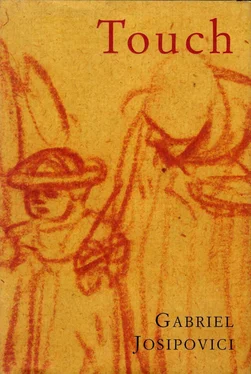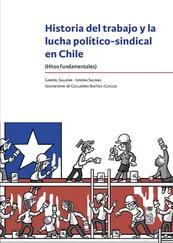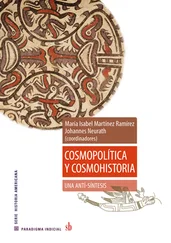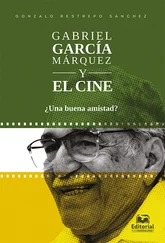Gabriel Josipovici - Touch
Здесь есть возможность читать онлайн «Gabriel Josipovici - Touch» весь текст электронной книги совершенно бесплатно (целиком полную версию без сокращений). В некоторых случаях можно слушать аудио, скачать через торрент в формате fb2 и присутствует краткое содержание. Год выпуска: 1996, ISBN: 1996, Издательство: Yale University Press, Жанр: Современная проза, на английском языке. Описание произведения, (предисловие) а так же отзывы посетителей доступны на портале библиотеки ЛибКат.
- Название:Touch
- Автор:
- Издательство:Yale University Press
- Жанр:
- Год:1996
- ISBN:0300066902
- Рейтинг книги:5 / 5. Голосов: 1
-
Избранное:Добавить в избранное
- Отзывы:
-
Ваша оценка:
- 100
- 1
- 2
- 3
- 4
- 5
Touch: краткое содержание, описание и аннотация
Предлагаем к чтению аннотацию, описание, краткое содержание или предисловие (зависит от того, что написал сам автор книги «Touch»). Если вы не нашли необходимую информацию о книге — напишите в комментариях, мы постараемся отыскать её.
Touch — читать онлайн бесплатно полную книгу (весь текст) целиком
Ниже представлен текст книги, разбитый по страницам. Система сохранения места последней прочитанной страницы, позволяет с удобством читать онлайн бесплатно книгу «Touch», без необходимости каждый раз заново искать на чём Вы остановились. Поставьте закладку, и сможете в любой момент перейти на страницу, на которой закончили чтение.
Интервал:
Закладка:
Those quiet rooms. Those strange, still youths. They are unimaginable and unimagined — till he painted them. Here too vision and skill go hand in hand. We can talk of Chardin's extraordinary colour sense, of the brilliance of his modulation, of the cunning way he realises space, of the evenness with which he paints the faces of his protagonists, the tables, knives, glasses of water, cards and green baize; we can note the skill with which the snail-shell spiral is made to run from the tip of the tricorne down through the body and out from the pen, the card, the quill. But, as Chardin said, this skill is secondary and what is important is the empathy with the subject. Something is happening that is both trivial, infinitely repeatable, and momentous, unique, unrepeatable. This bubble, once it has burst, will never exist again; this particular house of cards, once it has collapsed, will be gone for ever; this particular trajectory of the top, once the top has fallen over, will never be repeated; this particular pencil will never be as long (and the boy sharpening it will never be as young) again.
The eyes look down and outward, at the hand which is sharpening the pencil or laying down the card, at the spinning top or bubble which has just been released; but the gaze is, somehow, emanating from the whole body, just as it is the whole body which is focused on the act of sharpening the pencil, spinning the top, building the house of cards. That is what is meant by absorption. And our gaze too, as it moves from the hooded eyes to the hand holding the card, the pencil, the straw, falls under the same spell. We too are in that quiet room, not thinking anything, not doing anything purposive, anything that ‘needs doing’. This is order. This is freedom. The hand releases the card as we release the painting that is before us, as Oedipus at Colonus released its protagonist, accepting that we must let it go and yet, for a moment, holding it within the orbit of our attention.
Appendix
‘I touch you’ — but ‘I am touched’, ‘that is touching’, mean something quite different. ‘I am touched by this branch’ can only mean: this branch moves me (because of its leafiness, bareness, etc.). If we mean it literally we say: ‘This branch is touching me.’
‘I am touched.’ What gives rise to this apparently figurative expression? The notion of the heart being touched? A hard-hearted person is one whose heart cannot be touched. Is the concept of the soft heart at the back of the phrase ‘a soft touch’ — someone who can easily be persuaded to part with his money? (cf. ‘He touched me for a fiver.’)
‘I am touched’ means: I am moved. But ‘he is touched’, now an archaic expression, means that he is not quite normal. Touched by what then? Fate? God? Ill-luck? (But of Dr Johnson it could have been said: ‘He was touched’ — by Queen Anne, for the scrofula.)
Stuart Hood, in a letter, reminds me of the custom Italian males have of touching their testicles to ward off the evil eye. ‘I remember an Italian friend of mine saying’, he writes, ‘that at the liceo they would go into the exam room ter quaterque testiculis tactis .’
‘I am tactful’, ‘he is tactful’, etc. How strange to be full of touch. The Shorter OED gives, under ‘tact’ 1.b.: ‘ fig . A keen faculty of perception or discrimination likened to the sense of touch’. Under 2: ‘Ready and delicate sense of what is fitting and proper in dealing with others, so as to avoid giving offence or to win good will’. Which begs the question of why a keen faculty of perception or discrimination should be likened to the sense of touch.
‘Tactile’, on the other hand, remains firmly unmetaphorical. (And ‘tactic’ comes from a different root, the Greek taktike , related to tekne , from which our technique derives.)
‘Toccata’. ‘A composition for a keyboard instrument, intended to exhibit the touch and technique of the performer, and having an air of an improvisation’. Thus the Shorter OED. But the New Zingarelli asserts that it is ‘Atto del toccare una sola volta’, the act of touching once only, and gives the musical definition: ‘Sonata di un sol tempo, di stile elevato e da eseguirsi uno strumento a tastiera’ (a keyboard instrument). Stuart Hood again: ‘Clearly a feminine past participle used actively. But what is the feminine noun that is to be understood? Presumably the same one as in sonata , which is also a past participle. Can it be musica ?’
On the keyboard a single touch will produce a single note. Is there the indication in the definitions of ‘toccata’ that this will reveal one's strengths and weaknesses more clearly than a stringed instrument or one that has to be blown into.
‘What a fine touch he has!’ Of a pianist of course, but also of a footballer or tennis player. But what of the diver or gymnast? It seems that something else must be touched and then released, such as a keyboard or a ball. But would the term be used in snooker, where the essence of the game is to have a fine touch?
On the other hand, while ‘I have lost my touch’ could be said by a pianist or a centre-forward, it might also be said by a teacher or a theatre director. Note the difference here between ‘I seem to be losing my touch’ and ‘I seem to be losing touch with them.’
‘A nice touch.’ The icing on the cake.
‘A light touch’ — but ‘a heavy hand’. Is that because touch cannot by definition be heavy? But then is not ‘a light touch’ a tautology? Well, not exactly .
‘How touching it was to see them’ — but ‘she was so touching’ is more likely to be used of someone we see acting a part: ‘She was so touching as Juliet.’ ‘She was so touching at her father's funeral’ would be either silly or catty. Thus we recognise that our hearts can be touched (‘I was so touched that she remembered’), but we may suspect the person who touches us in this way of having designs upon us.
‘ Touché !’ The cry of the fencer — nowadays, naturally, only metaphorical. The admission of the one who has engaged us in an intellectual fencing match that he has been fairly beaten. Yet, as is the way with metaphors, it can be a means of warding off a real admission of defeat: Touché ! — but have I really been touched by your argument?
‘Stay in touch’, we say, and are hardly sure whether we mean it or not.
Notes
p.6. Merleau-Ponty — Maurice Merleau-Ponty, La Prose du monde , Gallimard, 1969, 186–70; The Prose of the World , tr. John O'Neill, Heinemann, 1974, 134–7.
pp.9–10. ‘Photography maintains’ — Stanley Cavell, The World Viewed: Reflections on the Ontology of Film , enlarged edn, Harvard University Press, 1979, 23, 26.
p.10. Walter Benjamin — ‘The Work of Art in the Age of Mechanical Reproduction’, in Illuminations , ed. Hannah Arendt, tr. Harry Zohn, Jonathan Cape, 1970, 224–5.
p.12. Donald Davie — Articulate Energy , Penguin Books, 1992 edn, 259–60.
p.15. ‘I feel I was wrong’ — Marcel Proust, ‘Journées de pèlerinage’, in Contre Sainte-Beuve , ed. Pierre Clarac et Yves Sandre, Gallimard, Pléiade, 1971, 84–6; On Reading Ruskin , trans. and ed. Jean Autret, William Burford and Phillip J. Wolfe, Yale University Press, 1987, 16–17.
p.20. ‘Make all men living’ — Aeschylus, Choephoroe , 1. 902. See John Jones, On Aristotle and Greek Tragedy , Chatto & Windus, 1962, 100–103.
p.20. Ezekiel 33 — see Harold Fisch, Poetry With a Purpose: Biblical Poetics and Interpretation , Indiana University Press, 1988, Ch.4.
Читать дальшеИнтервал:
Закладка:
Похожие книги на «Touch»
Представляем Вашему вниманию похожие книги на «Touch» списком для выбора. Мы отобрали схожую по названию и смыслу литературу в надежде предоставить читателям больше вариантов отыскать новые, интересные, ещё непрочитанные произведения.
Обсуждение, отзывы о книге «Touch» и просто собственные мнения читателей. Оставьте ваши комментарии, напишите, что Вы думаете о произведении, его смысле или главных героях. Укажите что конкретно понравилось, а что нет, и почему Вы так считаете.












